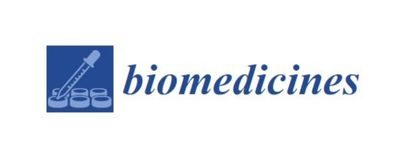Identification of tissue-specific variations of the microbiome resulting from endurance training
Villarroel and colleagues (2022) explored the contribution of tissue microbiome on muscle function in Endurance Training:
→ The authors explored blood and skeletal muscle microbiomes from healthy male individuals subjected to 6-week endurance training.
→ A contamination-aware metagenomic approach allowed for reliable data by demonstrating extremely low levels of bacterial DNA concentrations in controls versus experimental samples. Tissue microbiome profiles were clearly distinct from the negative controls.
→ Endurance training specifically remodeled the microbiome in the skeletal muscle but not in the blood.
→ This study opens the way to further investigations to determine the contribution of tissue microbiome on muscle function.
CITATIONS

Endurance Training in Humans Modulates the Bacterial DNA Signature of Skeletal Muscle
Villarroel J, Donkin I, Champion C, Burcelin R, Barrès R. Biomedicines. 2021 Dec 29;10(1):64. doi: 10.3390/biomedicines10010064. PMID: 35052744; PMCID: PMC8773292.
Accumulating evidence supports the existence of a tissue microbiota, which may regulate the physiological function of tissues in normal and pathological states. To gain insight into the regulation of tissue-borne bacteria in physiological conditions, we quantified and sequenced the 16S rRNA gene in aseptically collected skeletal muscle and blood samples from eight healthy male individuals subjected to six weeks of endurance training. Potential contamination bias was evaluated and the taxa profiles of each tissue were established. We detected bacterial DNA in skeletal muscle and blood, with background noise levels of detected bacterial DNA considerably lower in control versus tissue samples. In both muscle and blood, Proteobacteria, Actinobacteria, Firmicutes and Bacteroidetes were the most prominent phyla. Endurance training changed the content of resident bacterial DNA in skeletal muscle but not in blood, with Pseudomonas being less abundant, and both Staphylococcus and Acinetobacter being more abundant in muscle after exercise. Our results provide evidence that endurance training specifically remodels the bacterial DNA profile of skeletal muscle in healthy young men. Future investigations may shed light on the physiological impact, if any, of training-induced changes in bacterial DNA in skeletal muscle.
Keywords: tissue-borne microbiome; 16S rRNA sequencing; skeletal muscle; endurance training
Interested in more articles on the topic? Click on the category “Microbiome & Metabolism”
Expand your knowledge on the different microbiomes:

